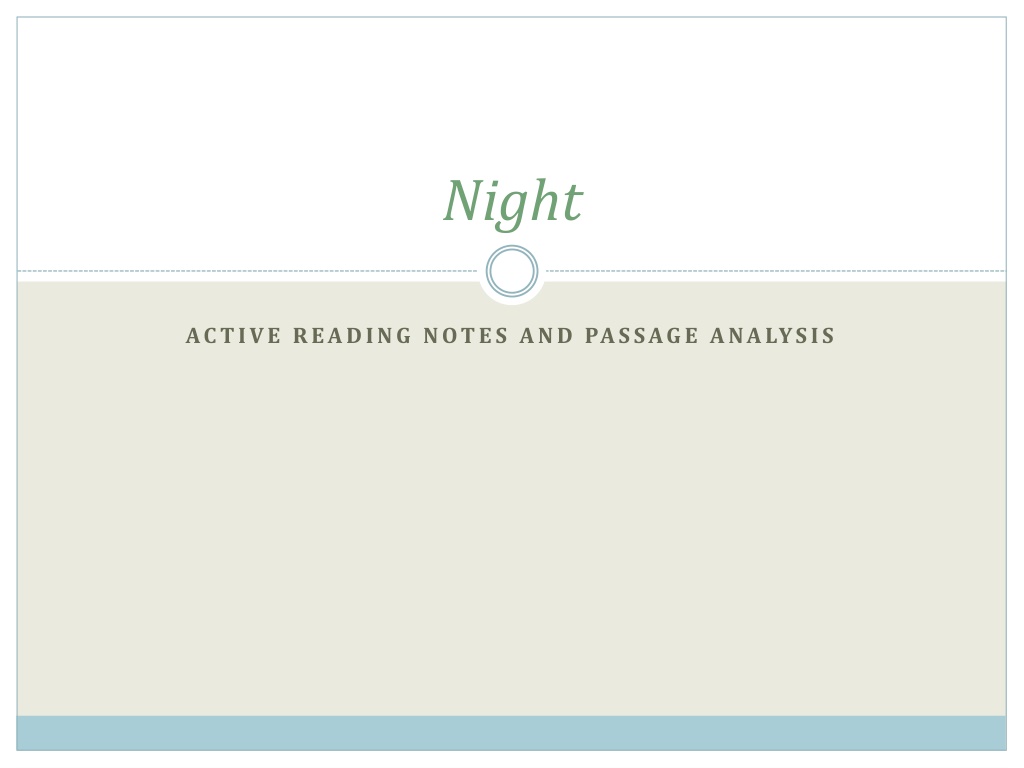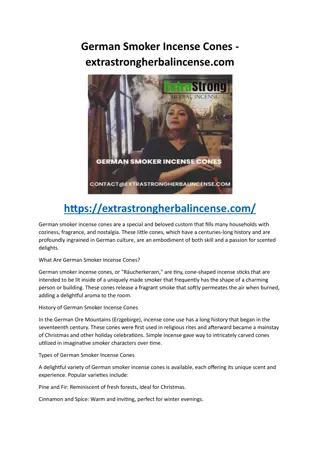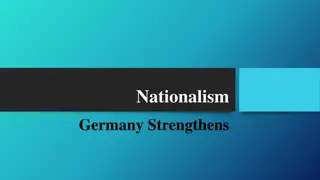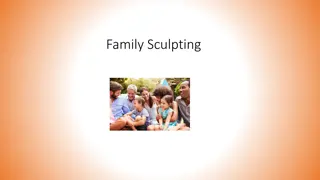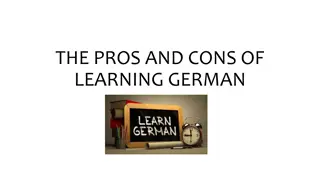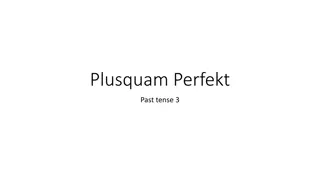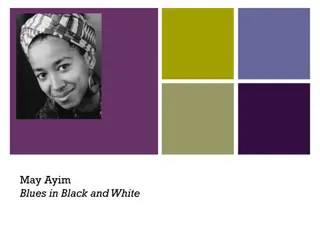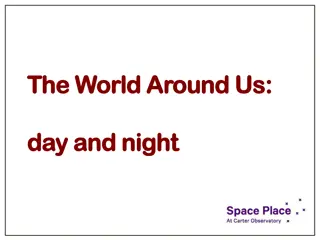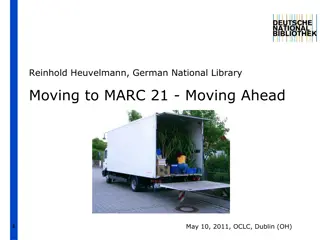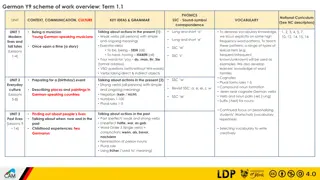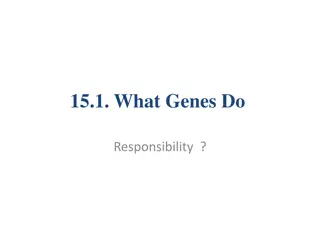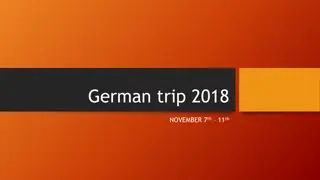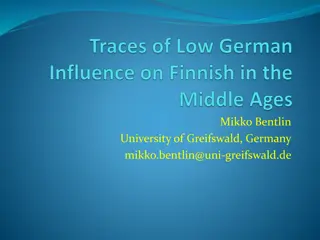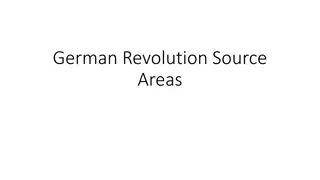Understanding 'Night': Family History, Moishe the Beadle, and German Power in Pages 3-12
Pages 3-12 of "Night" by Elie Wiesel reveal the protagonist's family history, interactions with Moishe the Beadle, and the emergence of German power during the Holocaust. Starting in 1941 when Elie is 13 years old, the narrative explores the ignorance and disbelief surrounding the deportation of Jews, the survival story of Moishe, and the initial refusal to accept the mass extermination. Through character developments and subtle hints, Wiesel intricately weaves a tale of innocence shattered by the unfolding horrors of the Holocaust.
Download Presentation

Please find below an Image/Link to download the presentation.
The content on the website is provided AS IS for your information and personal use only. It may not be sold, licensed, or shared on other websites without obtaining consent from the author. Download presentation by click this link. If you encounter any issues during the download, it is possible that the publisher has removed the file from their server.
E N D
Presentation Transcript
Night ACTIVE READING NOTES AND PASSAGE ANALYSIS
Passage Analysis Each requires a complete sentence, and at least 2-3 sentences to fully answer. Your commentary should fully explain your response. (1) Identify two strong words/phrases in the passage. What makes this word/phrase strong? How does it impact the audience? (2) How does Wiesel sound (think: tone)? How does he ensure these feelings come across? (2) What is the ultimate claim that could be made from the passage being read and discussed? What does Wiesel want us to think after reading that specific passage?
Pages 3-12 Reveals family history Starts in 1941, he is 13-years-old Does not know what The Final Solution is (proves Hitler s agenda is very secretive) He was deeply religious Has 3 siblings: 2 older sisters 1 younger sister
Pages 3-12 Moishe the Beadle Poor child in Sighet He is left alone often (his character development suggests that he is unloved) Known for asking controversial questions Why do you pray? Elie does not know how to answer his questions. Moshe helps him to want to learn about involved religions that might help him answer that question.
Pages 3-12 German power starts to be known Foreign Jews are deported (Moishe) Rumored to be at a labor camp; people are okay with this idea of losing rights Sighet stops talking about the deported Jews The common belief: we are safe and the labor camps cannot be real The start of developed ignornace
Pages 3-12 Moishe s story: He survived, by sheer happenstance Gestapo (part of the Nazi party) stopped train, made victims dig a mass grave, and then executed the victims. It was about fear and suffering.
Pages 3-12 1945: People believed mass extermination was not realistic (it was so barbaric, people refused to believe the stories) There were few witnesses and absolutely no photographic evidence Why should they believe? Also: Elie asks to leave Sighet. Father refuses (he is too old). German forces arrive shortly after this request.
Pages 3-12 German officers: Good natured, supportive Sighet Jews refuse to believe the rumors, even mocked the rumors In reality: Germans were taking notes, identifying the Jewish families, and establishing a need for a ghetto He was a spy. A very likeable spy who falsely gained their trust.
Pages 3-12 German forces then . Arrested political leaders Placed Jewish families under house arrest (3 days) Seen outside? Punishment was death. Forbidden to own valuable property Forced to wear the Star of David (the yellow star) Could not be out of their house past 6:00PM Could not travel Could not go caf s or diners THIS IS THE START OF A GHETTO.
Pages 3-12 Passage Analysis He told me what happened to him and his companions. The train with the deportees had crossed the Hungarian border and, once in Polish territory, had been taken over by the Gestapo. The train had stopped. The Jews were ordered to get off and onto the waiting trucks. The trucks headed toward a forest. There everybody was ordered to get out. They were forced to dig huge trenches. When they had finished their work, the men from the Gestapo began theirs. Without passion or haste, they shot their prisoners, who were forced to approach the trench one by one and offer their necks. Infants were tossed into the air and used as targets for the machine guns. This took place in the Galician forest, near Kolomay. How had he, Moishe the Beadle, been able to escape? By a miracle.
Pg. 12-22 Two ghettos created One large and one small Some remained in their home, others were forced to move Families moved in to help others Walls and barriers were built to establish segregation
Pg. 12-22 Once in the ghetto People accepted their fate (they were alive, and were separated from the Germans not dead) People refused to accept that the Holocaust was occurring even the people who would most likely be killed from it If the victims did not believe it was true, then the same might be said of the Allied forces at war
Pg. 12-22 Larger ghetto condensed to just smaller ghetto Ghetto starts to be destroyed the Jews of Sighet were now being transported They do not know where. Concentration camps were not highly publicized. President of Jewish Council does know Germans threaten to kill if he tells anyone.
Pg. 12-22 People were loaded like cattle onto a freight train German s goals: Remove freedom Cage the Jews Transport them to the camps The Germans treated people like animals to make them feel less human.
Pg. 12-22 First reference to night It s a time that is too dark to see, and thus becomes something to fear Tomorrow (a daylight) seems to be unknown
Pg. 12-22 Passage Analysis Night. No one was praying for the night to pass quickly. The stars were but sparks of the immense conflagration that was consuming us. Were this conflagration to be extinguished one day, nothing would be left in the sky but extinct stars and unseeing eyes.
Pg. 23-28 In a train, headed to Auschwitz Largest and most deadly death camp (used labor and gas chambers) Between 1940 and 1945, over four million people died there
Pg. 23-28 Germans are psychologically trying to affect their victims by treating them as animals Loaded into a cattle car, the symbolism was meant to deeply affect their victims They call them dogs
Pg. 23-28 Mrs. Schacter Sees a fire (inside of her mind, no one else can see this fire) She is having an anxiety attack: her friends and son are trying to calm her Her screams could mean their death The men tie and gag her to prevent screaming (she s affecting them psychologically, too). She gets loose, they physically strike her. The Holocaust victims became violent towards one another out of preservation. They have been treated like an animal, so now they are starting to act like one.
Pg. 23-28 Auschwitz-Birkenau Final destination (learned by someone reading and offering gold watch) 1944: Auschwitz-Birkenau had been opened for four years This proves that German propaganda to hide the truth worked: no one knew what Auschwitz was or did.
Pg. 23-28 Passage Analysis The night seemed endless. By daybreak, Mrs. Schachter had settled down. Crouching in her corner, her blank gaze fixed on some faraway place, she no longer saw us.
Pg. 29-37 At Auschwitz-Birkenau: Men to the left, women to the right. This is the last he saw of his mother, his younger sister This is the selection process: Determining who will live and who will die
Pg. 29-37 An old man gives advice to avoid being selected : Elie is OLDER than he actually is Shlomo (his father) is YOUNGER than he actually is
Pg. 29-37 The old man becomes angry due to their confusion The Wiesel s were too innocent/ignorant to know or to recognize the danger that they were in. The old man is insulted he has been there for a while. No one has come to save him from the Holocaust. Them not knowing anything proves to the old man that no one will be coming.
Pg. 29-37 Dr. Mengele cruel, though not intelligent, face, complete with a monocle Determined who was selected with his cane Known as the Angel of Death LEFT: you are put to work RIGHT: crematoria
Pg. 29-37 SS officers search for stronger men Kommando: German word for detachment, here a detachment of concentration camp prisoners at forced labor A similar role to a Kommando was Kapos: a concentration camp prisoner selected to oversee other prisoners on labor details. The term is often used generically for any concentration camp prisoner whom the SS gave authority over other prisoners.
Pg. 29-37 Arrival process: Selection Barracks Loss of clothes Loss of possessions Barber: loss of hair Disinfectant Running in the snow/cold further psychological attacks Clothes given
Pg. 27-37 Passage Analysis Never shall I forget that night, the first night in camp, that turned my life into one long night seven times sealed. Never shall I forget that smoke. Never shall I forget the small faces of the children whose bodies I saw transformed into smoke under a silent sky. Never shall I forget those flames that consumed my faith forever. Never shall I forget the nocturnal silence that deprived me for all eternity of the desire to live. Never shall I forget those moments that murdered my God and my soul and turned my dreams to ashes. Never shall I forget those things, even were I condemned to live as long as God himself. Never.
Pg. 37-46 One NIGHT from arrival: Last image of mother and sister Man shot and killed Infant bodies in grave Crematoria Shaved, freezing, degraded
Pg. 37-46 Passes under gate of Auschwitz: Arbeit Macht Frei Work makes you free Literal translation: you work yourself to death, and in death you are free of the oppression. They encouraged their victims to hope for death.
Pg. 37-46 All Holocaust victims bear a tattoo. Nazi s numbered their victims to ensure that they were able to keep track of how many victims were murdered. Continuation of de-humanization Elie: A-7713
Pg. 37-46 Stein: relative of the Wiesel s His only reason to live is finding his family He is always asking for any person who can verify that they are still alive Once he discovers the truth, that they are dead, we never see him again. The understanding is that he had no reason to live without his family being there. He lost his will to survive. It s an inference with deeply-rooted understanding in survival.
Pg. 37-46 Elie and a few hundred others were then taken to the next location: Buna A sub-camp of Auschwitz (aka: Auschwitz III)
Pg. 37-46 Passage Analysis In the afternoon, they made us line up. Three prisoners brought a table and some medical instruments. We were told to roll up our left sleeves and file past the table. The three veteran prisoners, needles in hand, tattooed numbers on our left arms. I became A-7713. From then on, I had no other name.
Pg.47-54 Victims of the Holocaust were intentionally starved, while the leaders of the camp were obese Holocaust victims would trade food and clothing with the perpetrators for additional rights
Pg. 47-54 Rumors also swirled about some of the leaders of the camp about inappropriate actions with children It was thought that some of the leaders engaged in sex trafficking with young boys at the time. This is a further extension of human trafficking: illegal trade of human beings for the purposes of reproductive slavery, commercial sexual exploitation, forced labor, or a modern-day form of slavery
Pg.47-54 Dentists made notes about those with gold fillings in their teeth It was about who had money in their mouth It was about greed Basic human emotion Driving factor of hate Not always money related, but often connected
Pg. 47-54 Passage Analysis A few days after my visit, the dentist s office was shut down. He had been thrown into prison and was about to be hanged. It appeared that he had been dealing in the prisoners gold teeth for his own benefit. I felt no pity for him. In fact, I was pleased with what was happening to him: my gold crown was safe. It could be useful to me one day, to buy something, some bread or even some time to live. At that moment in time, all that mattered to me was my daily bowl of soup, my crust of stale bread. The bread, the soup those were my entire life. I was nothing but a body. Perhaps even less: a famished stomach. The stomach alone was measuring time.
Pg. 54-65 Elie discusses Idek and other German leaders who physically beat the prisoners at Buna during times of madness Elie is attacked most often for being in the wrong place at the wrong time When guards were angry, they released their anger on the prisoners with no reason (Elie s first recount, he crossed in front of Idek nothing else)
Pg.54-65 Elie s father and their relationship Elie loves him dearly, tries to help him as often as possible Elie forfeited his gold tooth to save his father from Franek s constant assaults Removed with a rusty spoon in the latrines Lost his tooth for nothing, he was transferred two weeks later
Pg. 54-65 One day, before his transfer, on the day he was not scheduled to work, Idek forced everyone to work. During the time he worked, Idek was nowhere to be found Elie found Idek, in the back of a warehouse with a young girl Idek forced hundreds to work so that he could sleep with a girl Elie laughs at the notion it was that ridiculous Idek swears revenge on Elie
Pg. 54-65 Elie is called forward with his ID number, placed on a crate, and is whipped 25 times Elie fainted from the pain Afterwards, Idek threatens Elie with more whipping if he ever reveals what he saw INFERENCE: Idek was breaking a camp law, and if he was found out he could face punishment similar to the greedy dentist
Pg. 54-65 During an air raid at Buna, prisoners are required to be confined to their block Two cauldrons of soup are left unattended Everyone stares in extreme hunger, but only one man was brave enough to attempt to eat the food He reached the cauldron, and then was shot dead before he could eat the food. The only man who died during the air raid was this man.
Pg. 54-65 A week after the bombing, the Nazi s create a gallow in the central square to hang a man who attempted to steal during the air raid The narrative discusses 2 of the other prisoners in depth: One is suspect is involved with the resistance One is a young boy (the pipel) who was the servant of a resistance member
Pg. 54-65 The prisoners seemingly never cry as they are always in pain. The boy s death brought them all to tears. When being hung, you die from your weight pulling down and snapping your neck. The boy was too light. He suffocated to death as he strangled himself at the end of the noose. Starts a discussion on God and faith in relation to the Holocaust
Pg. 54-65 Passage Analysis And so he remained for more than half an hour, lingering between life and death, writing before our eyes. And we were forced to look at him at close range. He was still alive when I passed him. His tongue was still red, his eyes not yet extinguished.
Pg. 66-75 Elie is angry and confused about God Wants to know why he should pray: he was targeted and oppressed. To him, a just God would never let this happen. You must understand, Elie struggled with his faith because he suffered physically to no end.
Pg. 66-75 By the end of 1944: Elie begins to struggle and rebel against religious traditions: he eats on a day of fasting to prove his lack of faith
Pg. 66-75 Dr. Mengele and the selection: Nazi s executed anyone who had become too frail or too weak. Others were kept alive as they could still work ( still suffer) Both Elie and his father pass the selection. He does not stop to think about those who did not pass, he is too thankful to be alive. The Holocaust has changed him he is no longer compassionate.
Pg. 66-75 Passage Analysis I did not fast. First of all, to please my father who had forbidden me to do so. And then, there was no longer any reason for me to fast. I no longer accepted God s silence. As I swallowed my ration of soup, I turned that act into a symbol of rebellion, of protest against Him. And I nibbled on my crust of bread. Deep inside me, I felt a great void opening.
